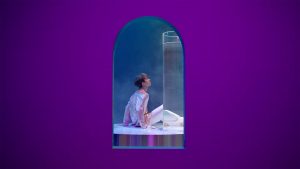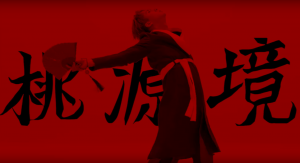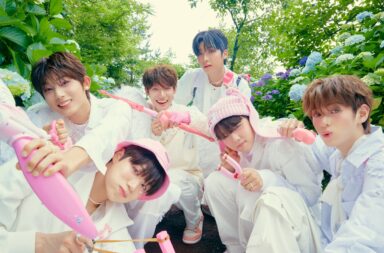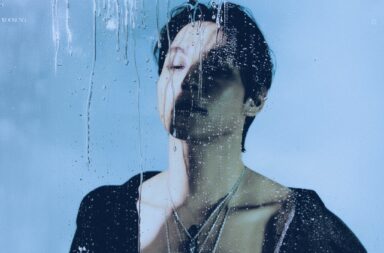 In the world of K-pop today, in such a saturated market, it is difficult to imagine that a new group from a lesser-known company would manage to hold the public’s attention long enough to gain mainstream popularity. These companies would try different tactics. Some focus their promotions entirely on one member, thinking that an individual would be easier to remember and gain public attention. Some companies take to survival shows before debut, hoping that the prospective group gains enough attention and momentum to become popular. Some companies have their group undergo a change in concept, hoping against hope it won’t alienate the older fans and simultaneously gain new ones. Whatever success these tactics might have is likely to be short-lived if the company didn’t think it through.
In the world of K-pop today, in such a saturated market, it is difficult to imagine that a new group from a lesser-known company would manage to hold the public’s attention long enough to gain mainstream popularity. These companies would try different tactics. Some focus their promotions entirely on one member, thinking that an individual would be easier to remember and gain public attention. Some companies take to survival shows before debut, hoping that the prospective group gains enough attention and momentum to become popular. Some companies have their group undergo a change in concept, hoping against hope it won’t alienate the older fans and simultaneously gain new ones. Whatever success these tactics might have is likely to be short-lived if the company didn’t think it through.
All of this makes VIXX’s continued success surprising. Hailing from Jellyfish Entertainment, they have managed to find and stick with a niche that works after a less than inspired debut, gaining a reputation as concept-dols for their commitment to a wide range of concepts. Whilst one would think that the novelty and shock value would wear off soon enough, VIXX retains their hold on the public – and their fans’ – attention through consistency in their music. They know their strengths lie in risque lyrics, bold imagery, and a conceptual title track, and they consistently deliver through each comeback. Their latest EP, Shangri-La, is no exception.
Enlisting the help of Devine Channel once more (producer of orchestral epic “Fantasy” and sultry R&B number “The Closer”), VIXX returns with “Shangri-La”, a sensual title track where East meets West. There is a skillful blend of old and new, with trap elements and the staccato plucks of traditional instruments, fitting well with the metaphorical use of poet Tao Yuan Ming’s Peach Blossom Spring – a fictional earthly paradise – to describe VIXX’s lovestruck emotional state. It’s a great track, made better with the rich lyrics, though it’s a shame the chorus doesn’t reach stratospheric heights like that of “Voodoo” (though given the song’s overall sensual vibe, this may have been intentional).
 “Into the Void” shows VIXX hasn’t lost their touch for the theatrical and dramatic – the track takes it’s time before the verses begin, time for us to appreciate the atmospheric, expansive instrumental that reins us in. Knowing the lyrics add another layer of depth to the song, that of a lover’s annoyance and anger as his significant other recklessly asks to break up, citing ‘he’s changed’, much to the lover’s indignation and fury.
“Into the Void” shows VIXX hasn’t lost their touch for the theatrical and dramatic – the track takes it’s time before the verses begin, time for us to appreciate the atmospheric, expansive instrumental that reins us in. Knowing the lyrics add another layer of depth to the song, that of a lover’s annoyance and anger as his significant other recklessly asks to break up, citing ‘he’s changed’, much to the lover’s indignation and fury.
You were the one that loved me
There is no change you know it, do not test me
 However, whilst the track intensifies during the climax of Ravi‘s rap makes sense knowing he’s rapping the narrator’s final angry declaration to his lover, his voice’s naturally grating quality coupled with the abruptness of the verse makes it feel heavy-handed and jarring, almost clumsily handled.
However, whilst the track intensifies during the climax of Ravi‘s rap makes sense knowing he’s rapping the narrator’s final angry declaration to his lover, his voice’s naturally grating quality coupled with the abruptness of the verse makes it feel heavy-handed and jarring, almost clumsily handled.
“Black Out” joins VIXX’s history of sexually suggestive b-sides like “Hot Enough” and “Secret Night” with it’s outstandingly racy lyrics and funky instrumental. The song describes a man who’s had a one-night stand, and though there are gaps in his memory, the experience leaves him hungry for more.
Black out what did we do last night?
Black out, truth is I only remember one thing
I’m thinking your body
I’m thinking your body
I’m thinking your body
The lyrics are cheeky, the choreography is even better, and special mention must be given to Ravi’s intermittent grunts and pauses within his verse, in case it wasn’t clear enough to listeners what this song is really about. Is it really any surprise that this track is the fan favoruite on the album?
 Keen to exhibit their songwriting capabilities, Ravi’s own composition “1,2,3,4,5” swiftly follows. It is the obligatory ballad on the album, but it is done very well. It describes a lover reluctant to let go, counting to himself before he chooses to forget about their relationship entirely. With a simple instrumental, it is very easy for such a track to quickly become boring and forgettable, but Ravi manages to elevate the track with a good ear of his members’ different vocal colors. He even manages to make Hongbin – easily the member weakest vocally – shine, with his “I’ll erase you now forget, forget, forget…” delightfully contrasting with Ken and N’s rich vocals. The composer’s own restraint in his verse also does wonders for the melancholic nature of the entire track.
Keen to exhibit their songwriting capabilities, Ravi’s own composition “1,2,3,4,5” swiftly follows. It is the obligatory ballad on the album, but it is done very well. It describes a lover reluctant to let go, counting to himself before he chooses to forget about their relationship entirely. With a simple instrumental, it is very easy for such a track to quickly become boring and forgettable, but Ravi manages to elevate the track with a good ear of his members’ different vocal colors. He even manages to make Hongbin – easily the member weakest vocally – shine, with his “I’ll erase you now forget, forget, forget…” delightfully contrasting with Ken and N’s rich vocals. The composer’s own restraint in his verse also does wonders for the melancholic nature of the entire track.
Reiterating my earlier point, VIXX consistently delivers, and this EP is no exception with their lyrics being as racy and their imagery being as rich as ever. However, though their tactics work, I fear their albums may feel formulaic should they not make efforts in switching it up every once in a while. It’s all very good for VIXX’s title track concept to change, but if the b-sides don’t vary or aren’t similarly affected by the change in concept, why should we listen to anything outside of their title tracks? Indeed, after “Into The Void”, the EP seems to have lost the traditional influence entirely. Even “To Us”, the final track, feels tacked on and unnecessary, despite similarities to earlier ballads like “Thank You for Being Born” and “Love Letter”.
 With their reputation as concept-dols, I long to see VIXX return with an album where the titular concept doesn’t just apply to the title track but the entire album, like what The Weeknd accomplished with his acclaimed mixtape House of Balloons, or Dean with 130 mood: TRBL. But until then, I am certain whatever VIXX puts out, I will continue to enjoy if this EP is anything to go by.
With their reputation as concept-dols, I long to see VIXX return with an album where the titular concept doesn’t just apply to the title track but the entire album, like what The Weeknd accomplished with his acclaimed mixtape House of Balloons, or Dean with 130 mood: TRBL. But until then, I am certain whatever VIXX puts out, I will continue to enjoy if this EP is anything to go by.
Rating: 3.5/5
(YouTube, Images via Jellyfish Entertainment)


